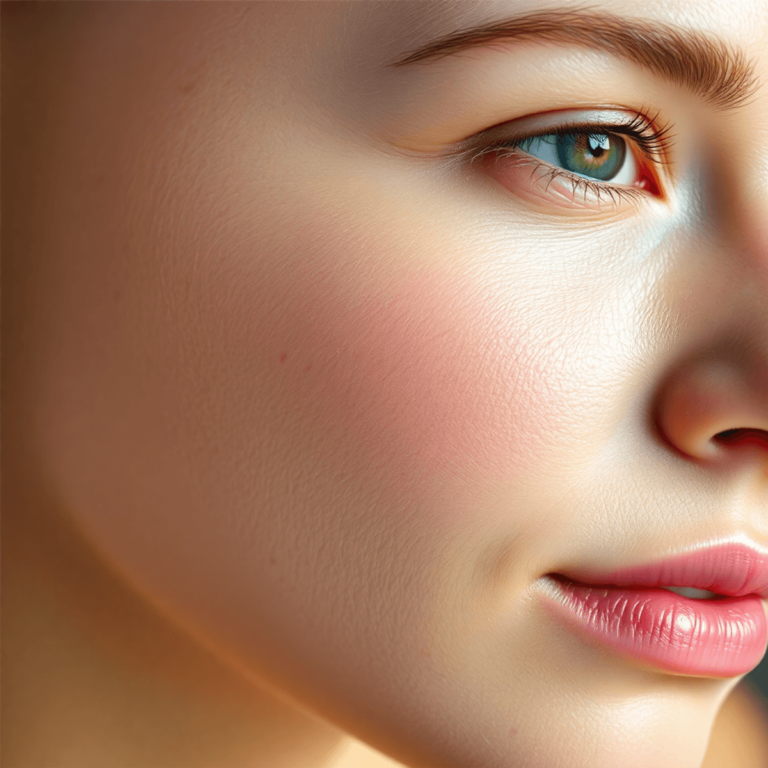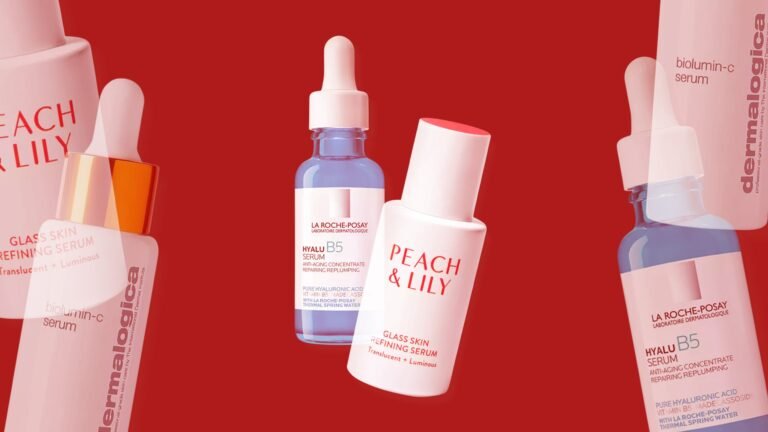How to Cure Pimples at Home

Introduction
Pimples, also known as acne, are a common skin condition caused by various factors such as hormonal imbalances, excess sebum production, and bacterial infection. While there is no instant remedy for pimples, home remedies and natural treatments can play a significant role in diminishing their appearance and preventing future breakouts.
In this article, we will explore effective home remedies and lifestyle changes that can help manage and reduce the occurrence of pimples. From apple cider vinegar to stress reduction techniques, we will discuss a variety of natural solutions that can easily be incorporated into your skincare routine. By using these methods, you can take control of your own journey to achieving clearer and healthier skin without relying solely on commercial products or medical treatments.
Causes of Pimples
Pimples, also known as acne, are a common skin condition that affects many people. Understanding the underlying causes of pimples can help in managing and preventing breakouts. Here are some factors that contribute to the development of pimples:
1. Hormonal Imbalances
Hormonal changes, particularly during puberty, menstruation, and pregnancy, can trigger acne breakouts. Increased levels of androgens (male hormones) stimulate the sebaceous glands to produce more sebum (oil), leading to clogged pores and the formation of pimples.
2. Excess Sebum Production
Sebaceous glands produce sebum, which helps keep the skin lubricated. However, overproduction of sebum can result in oily skin, clogged pores, and acne. Factors such as genetics, hormonal imbalances, and certain medications can contribute to excessive sebum production.
3. Bacterial Infection
Propionibacterium acnes (P. acnes) is a type of bacteria that naturally resides on the skin. However, when there is an excess buildup of sebum and dead skin cells, this bacteria can multiply rapidly and cause inflammation in the pores. This leads to the formation of red and swollen pimples.
It’s important to note that these factors often work together to cause pimple formation. Hormonal imbalances can trigger excess sebum production, creating an environment where bacteria thrive and cause inflammation.
While these are the primary causes of pimples, other factors such as diet, stress levels, medication side effects, and certain skincare products may also contribute to acne breakouts in some individuals. It’s essential to identify any potential triggers or aggravating factors for each person’s specific situation.
By understanding the causes of pimples, you can take proactive steps towards managing and preventing breakouts.
1. Apple Cider Vinegar
Apple cider vinegar has gained popularity as a natural remedy for various skin conditions, including acne. It is known for its antibacterial properties and its ability to help balance the skin’s pH level. The acetic acid in apple cider vinegar can inhibit the growth of acne-causing bacteria, making it an effective topical treatment for pimples.
How Apple Cider Vinegar Works for Pimples
- Balancing Skin pH: The acidic nature of apple cider vinegar helps to restore the skin’s natural pH balance, creating an environment less conducive to bacterial growth.
- Antibacterial Properties: The acetic acid in apple cider vinegar acts as a potent antibacterial agent, targeting the bacteria that contribute to acne development.
Using Apple Cider Vinegar for Pimples
When using apple cider vinegar as a topical treatment for pimples, it’s essential to dilute it with water to avoid skin irritation or chemical burns. Here’s a simple step-by-step guide on how to use apple cider vinegar effectively:
- Dilution: Mix one part apple cider vinegar with three parts water to create a diluted solution.
- Application: Using a cotton pad or ball, apply the diluted apple cider vinegar to the affected areas of the skin.
- Precautions: Since apple cider vinegar is acidic, it’s crucial to perform a patch test before applying it to larger areas of the skin. If any irritation occurs, discontinue use immediately.
Precautions and Considerations
- Patch Test: Always conduct a patch test on a small area of skin before using apple cider vinegar more extensively.
- Skin Sensitivity: Individuals with sensitive skin may experience irritation from undiluted apple cider vinegar and should use caution when applying it.
Incorporating apple cider vinegar into your skincare routine may help reduce the appearance of pimples and support overall skin health. However, it’s important to be mindful of proper usage and potential skin sensitivities when using this natural remedy.
2. Zinc Supplements
Zinc supplements have gained attention for their potential role in managing acne and promoting skin health. Here’s a closer look at how zinc may offer benefits for reducing pimple inflammation and supporting overall immune function:
Role of Zinc
Zinc plays a crucial role in supporting the body’s immune system and promoting wound healing. It acts as a co-factor for over 300 enzymes involved in various biochemical pathways, including those related to skin health.
Reducing Pimple Inflammation
Research suggests that zinc exhibits anti-inflammatory properties, which may help reduce the redness and swelling associated with acne breakouts. By modulating the body’s inflammatory response, zinc may contribute to managing the symptoms of acne.
Regulating Sebum Production
Zinc also has the potential to regulate sebum production, an excess of which can contribute to clogged pores and acne development. By balancing sebum levels, zinc may help prevent the formation of new pimples.
Supporting Healthy Skin
Adequate zinc levels are essential for maintaining healthy skin. The mineral contributes to collagen synthesis, tissue repair, and overall skin integrity, which are important factors in managing acne and promoting skin healing.
When considering zinc supplements for acne management, it’s important to consult with a healthcare professional to determine the appropriate dosage and assess any potential interactions with other medications or existing health conditions.
While zinc supplementation may offer benefits for some individuals dealing with acne, it’s essential to approach it as part of a comprehensive skincare and wellness strategy.
Incorporating a varied diet rich in zinc-containing foods such as nuts, seeds, legumes, whole grains, and lean meats can also contribute to meeting the body’s zinc requirements. By addressing potential deficiencies through dietary modifications or targeted supplementation under professional guidance, individuals can explore the role of zinc in supporting their skin health and managing acne symptoms effectively.
3. Honey and Cinnamon Mask
The combination of honey and cinnamon is known for its potent antimicrobial properties, making it an effective natural remedy for treating pimples. Both ingredients have been used for centuries in traditional medicine due to their ability to soothe the skin and fight off acne-causing bacteria.
Honey possesses natural antibacterial properties that can help reduce inflammation and prevent bacterial growth on the skin. It also acts as a humectant, drawing moisture to the skin and keeping it hydrated. Cinnamon, on the other hand, contains compounds that exhibit antimicrobial activity, making it an excellent ingredient for combating acne.
Recipe for a Honey and Cinnamon Mask
Here’s a simple recipe for preparing a honey and cinnamon mask at home:
Ingredients:
- 2 tablespoons of raw organic honey
- 1 teaspoon of organic cinnamon powder
Instructions:
- In a small bowl, mix the raw organic honey and organic cinnamon powder until they form a smooth paste.
- Cleanse your face thoroughly to remove any dirt or makeup.
- Apply the mask evenly to your face, avoiding the delicate eye area.
- Leave the mask on for 10-15 minutes to allow the beneficial properties of honey and cinnamon to work on your skin.
- Rinse off the mask with lukewarm water and pat your skin dry with a clean towel.
This honey and cinnamon mask can be used once or twice a week as part of your skincare routine to help reduce pimple inflammation, soothe irritated skin, and promote overall skin health.
By incorporating this natural remedy into your skincare regimen, you can take advantage of its antibacterial effects while enjoying the soothing benefits it provides to your skin.
4. Tea Tree Oil
Tea tree oil is well-known for its effectiveness in treating acne due to its strong anti-inflammatory and antimicrobial properties. It’s a popular natural remedy for various skin issues, including acne, as it can combat the bacteria responsible for breakouts and alleviate inflammation in the skin.
Scientific Evidence
Numerous studies have demonstrated tea tree oil’s efficacy against acne:
- A publication in the Australasian Journal of Dermatology revealed that tea tree oil significantly reduced both the number and severity of acne spots. This study emphasized the oil’s bacteria-killing ability as a crucial factor in improving acne symptoms.
- A study featured in the Medical Journal of Australia compared tea tree oil to benzoyl peroxide, a common over-the-counter acne treatment. The results indicated that both treatments were effective in reducing acne spots, but tea tree oil exhibited fewer side effects like dryness and irritation.
Spot Treatment for Pimples
Tea tree oil can be used as a targeted spot treatment for pimples. Application of this oil directly onto individual blemishes can help reduce redness and swelling, making the pimples less noticeable and accelerating the healing process.
To use tea tree oil as a spot treatment:
- Mix a few drops of tea tree oil with a carrier oil such as jojoba or coconut oil to prevent skin irritation.
- Gently apply a small amount of the diluted tea tree oil to the affected areas using a cotton swab.
- Leave it on for a few hours or overnight before washing it off.
Before incorporating tea tree oil into your skincare routine, it’s important to do a patch test to check for any sensitivity to this potent essential oil.
Incorporating tea tree oil into your skincare routine can be an effective and natural way to deal with pimples without resorting to harsh chemicals or synthetic ingredients. Additionally, a recent study published in the journal Plants even explores the potential of tea tree oil in combination with other plant extracts for enhanced acne treatment.
Lifestyle Changes for Preventing and Managing Pimples
Exfoliation is an important part of any skincare routine, especially for those with acne-prone skin. Regular exfoliation helps prevent clogged pores by getting rid of dead skin cells that can cause breakouts. Here’s why exfoliation is important and some gentle methods to add to your skincare routine:
1. Importance of Exfoliation
- Preventing Clogged Pores: Dead skin cells can build up on the surface of the skin, mixing with excess oil and leading to clogged pores. This buildup creates a perfect environment for acne-causing bacteria to grow, potentially causing pimples and blackheads.
- Enhancing Product Absorption: By removing dead skin cells, exfoliation allows skincare products to penetrate better, making the most of their benefits for treating and preventing acne.
2. Gentle Exfoliating Methods
- Salicylic Acid Cleanser: Look for a cleanser that contains salicylic acid, a type of acid known for its ability to get into oily pores and remove dead skin cells. Use it once or twice a week to avoid exfoliating too much, which can irritate the skin.
- Soft Brush: Using a brush with soft bristles or a clean washcloth with a gentle cleanser can provide physical exfoliation without being too rough on the skin. Gently massage the skin in circular motions to get rid of dead skin cells and impurities.
Remember, while exfoliation is good for managing acne, it’s important not to do it too often. Doing it too much can remove the natural oils from your skin, causing your skin to produce even more oil. People with sensitive skin should be careful with exfoliation and may want to talk to a dermatologist before using exfoliating products.
3. Low Glycemic Diet
Eating a low glycemic diet can help manage pimples by keeping blood sugar levels stable and reducing hormonal changes that contribute to acne. By choosing foods that have a lower impact on blood sugar, you may have fewer breakouts and better overall skin health.
Some good food choices for a low glycemic diet are:
- Fresh fruits like apples, pears, berries, and oranges
- Non-starchy vegetables such as leafy greens, broccoli, cauliflower, and bell peppers
- Whole grains like quinoa, barley, bulgur, and steel-cut oats
- Lean protein sources like chicken, fish, tofu, and beans
By focusing on these low glycemic foods instead of high glycemic options like sugary snacks and processed carbs, you may see positive changes in your skin over time.
4. Stress Reduction
Long-term stress has been connected to increased oil production because of higher cortisol levels in the body. This extra oil can lead to clogged pores and acne flare-ups. Finding ways to manage stress can help with this aspect of acne.
Try adding stress-relief practices such as:
- Mindfulness Meditation: Using mindfulness meditation techniques can lower stress by helping you relax and clear your mind.
- Yoga: Doing yoga not only has physical benefits but also offers stress relief through focused breathing and movement.
- Enough Sleep: Making sure you get quality sleep is important for overall well-being and can help reduce stress.
By dealing with stress using these methods, you may notice improvements in your skin as well as your overall quality of life.
Incorporating these lifestyle changes alongside targeted home remedies can lead to more effective management of pimples. Each aspect plays a crucial role in supporting healthy skin from different angles – whether it’s through physical exfoliation or internal factors like diet and stress management. By taking a holistic approach to skincare, individuals can work towards achieving clearer and healthier-looking skin without relying solely on topical treatments or medications alone.
2. Low Glycemic Diet
In addition to home remedies, adopting a comprehensive approach to skincare and lifestyle can yield better results in the long run. One such strategy is focusing on a low glycemic diet, which can help stabilize blood sugar levels and reduce the risk of hormonal fluctuations that contribute to acne development.
How a Low Glycemic Diet Helps with Pimples
Consuming foods with a low glycemic index can prevent rapid spikes in blood sugar levels, which in turn helps regulate hormones such as insulin. When insulin levels are stable, it reduces the likelihood of excess sebum production and inflammation, both of which are associated with acne breakouts.
Suitable Food Choices for a Low Glycemic Diet
When following a low glycemic diet to manage pimples, consider incorporating the following food choices:
- Complex Carbohydrates: Opt for whole grains like quinoa, barley, and steel-cut oats instead of refined grains.
- Fruits: Choose fruits with a lower glycemic index such as apples, berries, and oranges over high-sugar fruits like watermelon or pineapple.
- Vegetables: Include non-starchy vegetables like leafy greens, broccoli, cauliflower, and bell peppers in your meals.
- Proteins: Incorporate lean protein sources like chicken breast, fish, tofu, and legumes into your diet.
- Healthy Fats: Consume sources of healthy fats such as avocados, nuts, seeds, and olive oil.
By making these dietary adjustments and focusing on low glycemic foods, you can support balanced blood sugar levels and potentially minimize the hormonal fluctuations that contribute to pimple formation. This aligns with the principles of an anti-acne diet, which emphasizes similar food choices to manage acne effectively.
Remember that while dietary changes can play a role in managing pimples, individual responses may vary. It’s essential to consult with a healthcare professional or a nutritionist before making significant changes to your diet, especially if you have existing health conditions or dietary restrictions. For instance, individuals with PCOS may require specific dietary considerations due to the condition’s impact on hormonal balance.
Additionally, being aware of foods to eat and avoid for acne management can further enhance the effectiveness of a low glycemic diet. This blog post provides valuable insights into optimizing your dietary choices for clearer skin.
3. Stress Reduction
In addition to home remedies, adopting a comprehensive approach to skincare and lifestyle can yield better results in the long run. Explore the following strategies:
Examine the Relationship Between Chronic Stress and Acne
- Chronic stress can lead to elevated cortisol levels, which in turn can increase sebum production. This excess oil on the skin can contribute to clogged pores and acne breakouts.
- Understanding this connection emphasizes the importance of managing stress for overall skin health.
Suggest Stress-Management Techniques
- Introducing readers to stress-management techniques such as mindfulness meditation or yoga can provide practical solutions for reducing stress levels.
- Mindfulness meditation allows individuals to focus on the present moment, potentially alleviating anxiety and stress.
- Similarly, yoga combines physical postures, breathing exercises, and meditation to promote relaxation and reduce stress.
By addressing stress through these techniques, individuals may experience a positive impact on their skin health, including a reduction in acne breakouts.
Conclusion
When it comes to finding effective home remedies for pimples, consistency is key. While there is no overnight solution, incorporating suitable home remedies and making lifestyle changes can help manage pimples effectively.
By using natural products such as apple cider vinegar and tea tree oil, you can harness their antibacterial and anti-inflammatory properties to target acne-causing bacteria and reduce inflammation. These remedies can be used topically as spot treatments or in combination with other ingredients like honey and cinnamon to create soothing masks.
However, it’s important to note that everyone’s skin is unique, and what works for one person may not work for another. It’s advised to experiment with different remedies and find the ones that suit your skin type and condition the best.
If your pimples persist or worsen despite trying home remedies, it’s recommended to consult a dermatologist. They can provide professional advice and may prescribe medications or suggest professional treatments if necessary.
Remember, managing pimples is not just about treating them when they appear. Adopting a healthy skincare routine that includes exfoliation, maintaining a low glycemic diet, and reducing stress through techniques like mindfulness meditation or yoga can also contribute to preventing future breakouts.
In conclusion, while there is no quick fix for pimples, consistently implementing suitable home remedies and making lifestyle changes can go a long way in achieving clearer and healthier skin.










